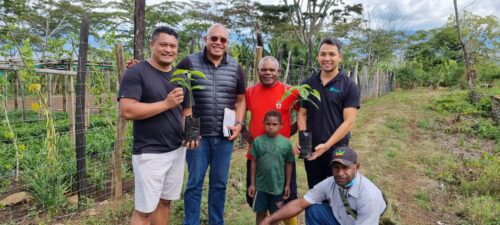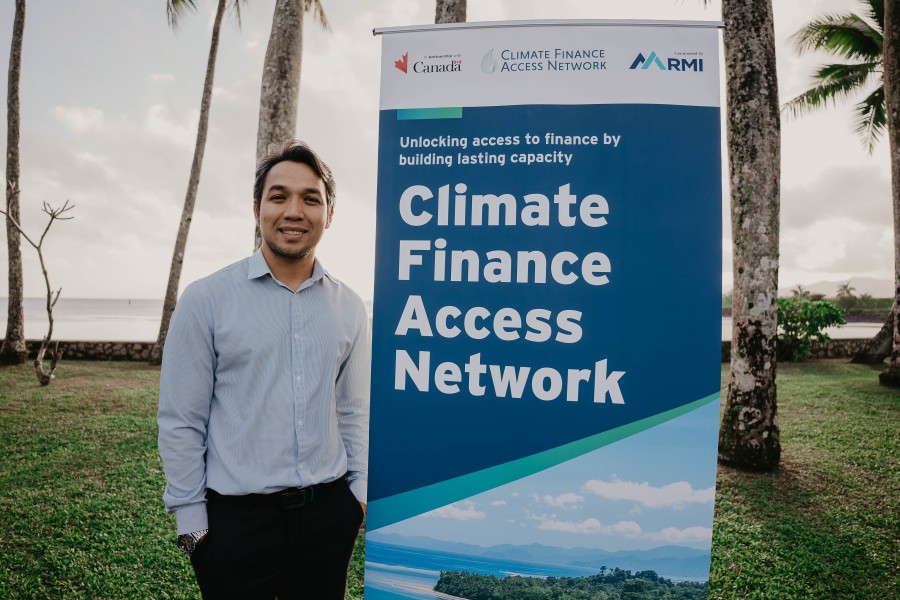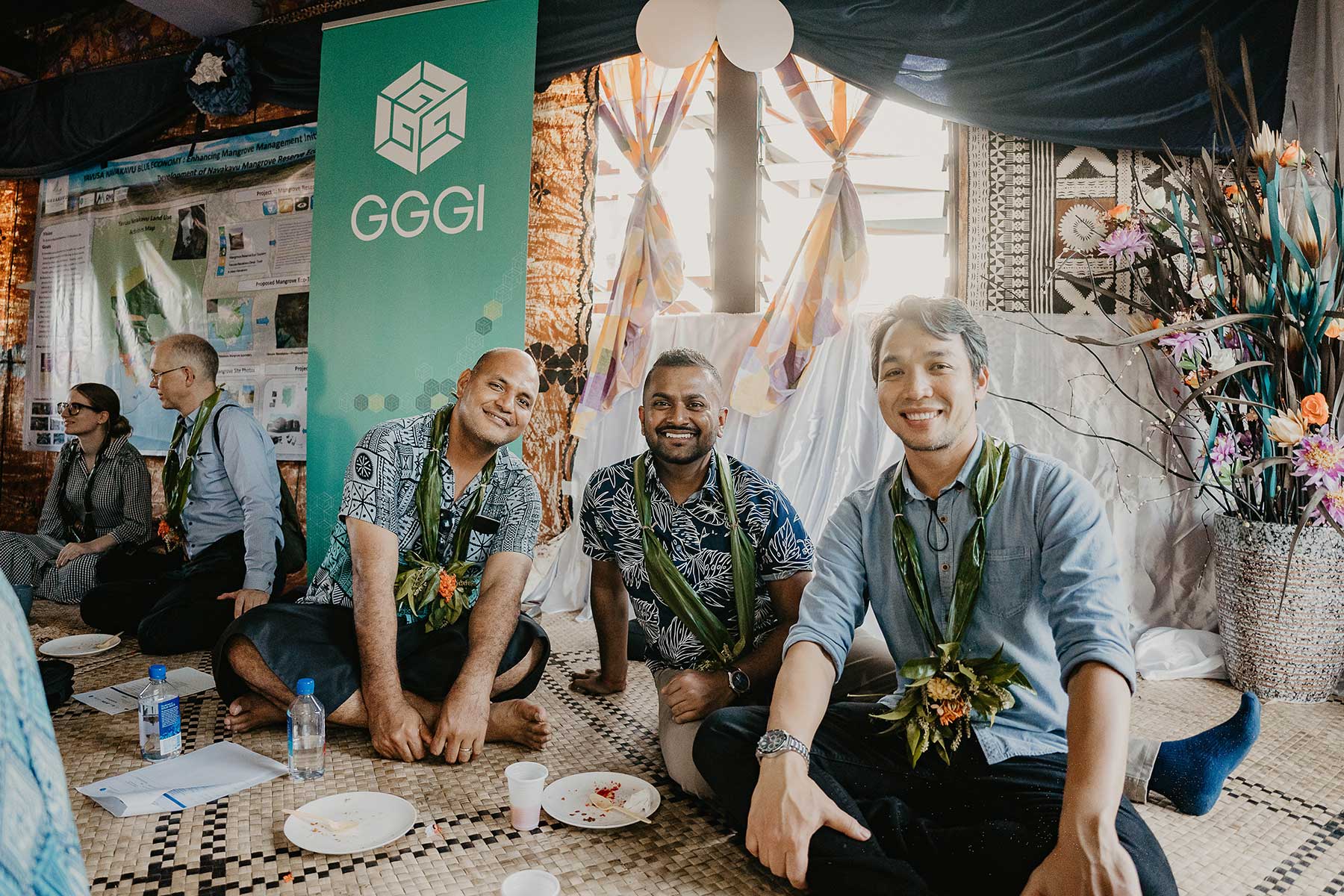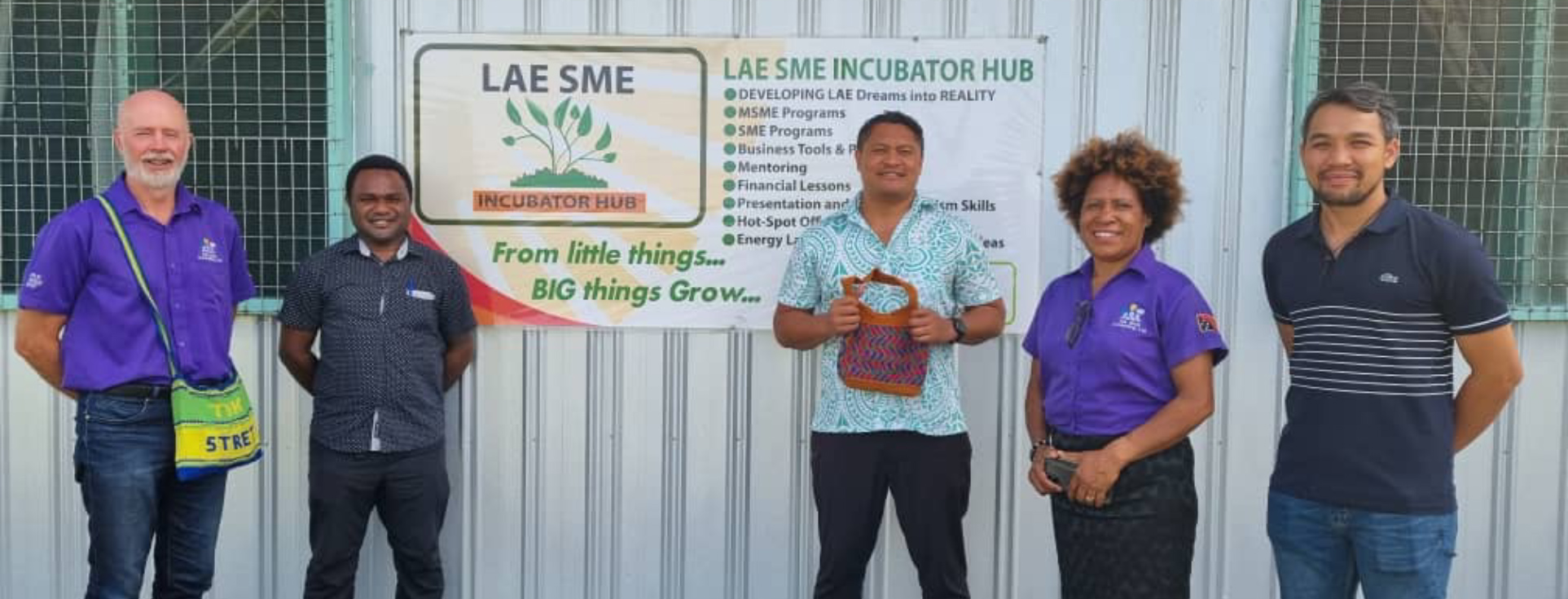
Improving Food Security for Subsistence Farmers
Tens of thousands of Papua New Guineans will have improved agriculture and more resilient communities thanks to RMI’s Climate Finance Access Network.
Papua New Guinea, the largest island nation in the Pacific region, is heavily reliant on subsistence agriculture — over 80 percent of the population, more than 5 million people, earn a living from it. It is also the Pacific country that is likely to suffer the most economic damage from climate change, which can cause severe crop loss. Phonesavanh Latmany set out to change that.
Latmany is an advisor with the Climate Finance Access Network (CFAN), a program run by RMI to train advisors to create an in-country community of financial and project development expertise. CFAN currently has seven advisors in eight countries throughout the Pacific. The first proposal in the CFAN pipeline approved for funding is a US$10 million project to improve food security through adaptation of small-scale agriculture in Papua New Guinea, supported by Latmany.

The project will address barriers to improving resilience of smallholder farmers and enhance the sustainability of agricultural value chains through:
- the adoption of climate-smart practices
- improving the quality of the produce
- climate-resilient post-harvest processing and storage
- increasing access to markets
- creating green jobs for women and youth in vulnerable communities
This will ultimately benefit 18,600 people directly and more than 87,000 indirectly. Latmany noted that this success represents a truly collaborative approach — the type of collaboration that CFAN was designed to empower. “It was all parties [involved],” he said, “Papua New Guinea stakeholders, Global Green Growth Institute, Pacific Community-SPC, UN Women, and consultants who got us here.”

Latmany (on right) with fellow members of the Pacific cohort in the Navakavu community in Fiji.
One of the most striking features of the entire process has been the record speed with which it was executed, kicking off the literal first week of Latmany’s time as an advisor. He recalled starting his first day on January 3, 2022, immediately starting work against a January 10 deadline, and a seven-hour, non-stop team call to finalize everything the night before the submission.
The hard work and late hours paid off. The concept note proceeded through the usual approval milestones — concept note review and revision, government sign-off, and full approval by the Adaptation Fund to move into full proposal development. Once the initial approval milestones were cleared, full proposal development proceeded with high efficiency in close partnership with SPC, despite the challenging and sometimes dangerous situation unfolding in the country at the time.
July and August 2022 were a difficult time in Papua New Guinea due to violence related to the general election, and Latmany and his team considered postponing the submission. Ultimately, though, they pushed through and achieved their January 2023 deadline. “This shows the added value of having in-country advisors, especially for regional and multilateral accredited entities that don’t necessarily have in-country presence,” said Dirk Snyman, Climate Finance Coordinator at The Pacific Community (SPC), an organization supporting development in the Pacific region. “Having someone with boots on the ground to coordinate, arrange meetings, and make connections was certainly helpful in getting project approval in what was comparatively record timing. It’s not often that a project goes through so quickly.”
The success of the proposal demonstrates the impact possible when mutually committed parties work in close collaboration. “UN Women came in with their gender equality and women empowerment expertise to conduct gender assessment and develop a gender action plan,” Latmany said. “SPC, as implementing entity, played a major role in coordinating and providing technical comments on the funding proposal. I was able to provide technical review and comments on the funding proposal throughout especially key activities, Environmental and Social Safeguards and Gender Assessment and Action Plan reports, as well as the budget. Since the Global Green Growth Institute [GGGI — CFAN’s implementing partner in the Pacific] has a presence in Papua New Guinea, this helped tremendously in terms of stakeholder engagement, including at the provincial level where GGGI provincial officer supported a series of consultations. All the credits go to the people involved in developing this funding proposal.”

Latmany (on right) on a site visit to the SME Incubator Hub in Lae, Papua New Guinea, which provides skill training and mentorship to aspiring entrepreneurs.
This is exactly what the Climate Finance Access Network was designed to do — bring together not only highly skilled embedded advisors in key regions, but also developing countries, donors, institutions, and regional and international organizations. Skylar Bee, CFAN Manager at RMI, noted, “It speaks to the power of the CFAN network. In this instance it is a great example of how GGGI as the implementing partner of CFAN was able to embed an advisor that provided support to SPC as an accredited entity to get this project across the finish line. This underlines and drives home that working as a network we are much stronger, quicker, and more agile together.”
And for Latmany and the people of Papua New Guinea, this means more resilient communities and improved food security in the face of climate change.
Learn more about CFAN: https://cfanadvisors.org/about/
Top image: Latmany and CFAN partner GGGI meet with coffee farmers in Papua New Guinea’s Eastern Highlands province to learn about the issues and challenges along the coffee value chain due to climate change.
